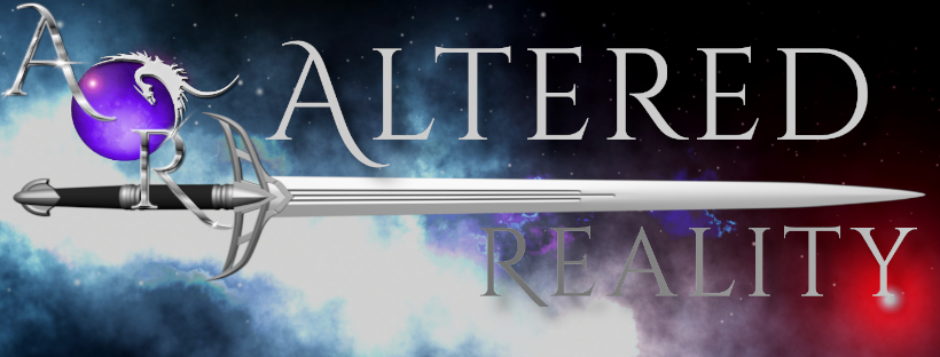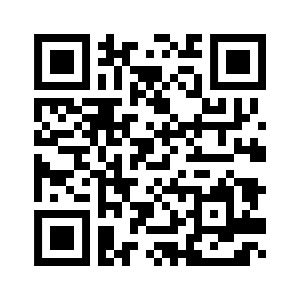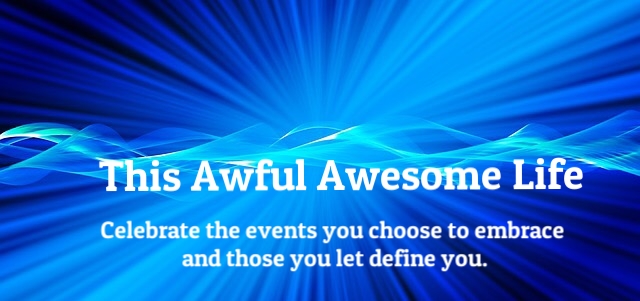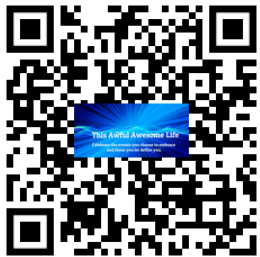I count the candles on my cake, knowing that there are more years forgotten than remembered, and I snuff out all thirty in a single breath. It’s a pumpkin cake with cream cheese frosting, baked in bundt form. My sister, Cam, only a year older than me, begins plucking out the mismatched candles, and I can see her mouthing the numbers as she counts. The five other members of the table watch me with gentle expectancy in the light of the chandelier as I begin slicing the cake and plating it on decorative cardstock. Next to me, my mother and father watch with prideful smiles, their presence warm with the wisdom of age.
“You know, they say you’re not really an adult until you’re thirty,” my mom says. She leans over the dining chair and squeezes my shoulder. “I told you on your fifteenth birthday that you were halfway to being a real adult, and do you remember what you said?”
“I wanted to skip right to thirty,” I say with a roll of my eyes.
My mother pulls back her arm and gapes. “How did you remember that?”
I chuckle as I slice another piece. “You’ve only told me that story four hundred times.”
“Well,” she states with indifference, “Are you glad you’re finally thirty?”
“I can’t say I want to be fifteen again, but I wouldn’t mind winding back a few years,” I smile. “This one’s kind of thin,” I say as I pass another plate to my mother.
“I’ll give it to your brother, he won’t remember anyway.”
Bink, fifteen years younger than me and cursed with a nickname from toddlerhood, pouts with vehement, teenage conviction as the meager dessert is placed in front of him. “Being fifteen sucks,” he mutters.
Both my mother and grandfather swivel their heads and begin indoctrinating Bink on how grateful he should be for his young age, how they would go back to fifteen if they could, even if they were without their memory.
“Actually, they’re finding out that kids remember a lot more than we give them credit for,” my sister interjects, returning from the kitchen where she deposited the used candles into a Ziploc bag and shoved them into a cabinet. “Especially teenagers.” She sits next to me, her eyes greedy for the pumpkin cake.
“Hell, I hardly remember anything before forty,” Grandpa wheezes, and everyone chuckles except for Cam.
“No, I’m serious. They can’t form memories, but they remember feelings and how they’re associated with everyone and everything they interact with. I mean, how do you think Bink knows all of our names?”
“No one’s arguing with you, Chamille,” my mother soothes.
“Yeah, but no one believes me either,” she frowns. A plate of hearty cake lands in front of her, and she stares at it a moment before pushing it over to our brother. “Bink can have mine,” she says, then she stands from the table and fades into the kitchen, where she immediately begins scrubbing dishes.
Bink’s face becomes the sun as he stabs his fork into his new prize. “Thanks, Cam,” he pants between bites.
“Bink, slow down,” my father grumbles. “You’re making my blood sugar spike just watching you.”
Bink does not slow down.
In October, I receive a phone call. I am in my classroom, a white and gray cement block lacking in tacky posters and colorful markers—just the way I like—when I notice Gavin Zarneke throwing wayward glances to his table partner. The kids are taking a logarithms and exponents quiz, often the hardest of the semester for students. I tap his desk with one finger to get his attention, and when he lifts his curly head, I see not anger or guilt, but fear. With a nod of my head, we’re outside the classroom, and I tell him he can pay a visit to our principal down the hall. There is dew in his eyes, and this bothers me for a reason I cannot place. I’ve met his father before—a gray-haired military commander who doesn’t go anywhere without a belt and black shoes. He once told me that Gavin was going to the marines regardless of what he did in school, and I had to hold my tongue on the right way to parent a child. Gavin’s life started at eighteen, the commander told me. I couldn’t argue with him; everyone’s life starts at eighteen.
The students stare as I sneak back into my classroom, Gavin no longer at my side.
“Get back to work,” I wave at them with an irritated hand gesture. Snickers appear and disappear as I recline in my desk chair, and I find myself frowning.
I receive the phone call as I’m walking to my car. Cam’s contact picture appears, so I swipe and zone out for a moment, adding polite acknowledgements to the conversation as if I’m listening. Truthfully, I’m still thinking about Gavin Zarneke and his weepy eyes. The image gnaws at me, so I don’t register a word Cam is saying until I hear: “Dad is dead.” Even though cars harbor glass windows on each side, I find them to be solitary places, so I cry on the drive home.
Three years later, Bink is blowing out eighteen mismatched candles of his own, some reused from my thirtieth. Under the dingy chandelier is another pumpkin cake lacking in cream cheese frosting, as that was our father’s recipe. Bink had insisted the cake remain bare.
My mother and grandfather sing with Cam and I, and Bink watches the candles flicker with soft eyes. There is a graveness to him that he lacked in his younger years. Sometimes, I look into the deep blue of his eyes and feel as though he is older than me. His hair is longer and curlier than it used to be, and his face is sharper, almost in a dangerous way.
He blows out the candles with a smile and begins slicing the cake with the same dull knife we always use. He serves himself last, and he waits until everyone else has taken a bite to grab his own fork.
“Is your first memory still that song?” our mother asks. There is a sweet sadness in her smile.
“‘Wings?’” Bink clarifies.
“Yes, that one.”
He merely nods, his fork hovering in his hand, still clean.
“Wings” played in the car when we drove back from Dad’s funeral. Bink told us he heard it when driving home from school one day, but he couldn’t tell us when. It’s unusual for someone to form a memory so early.
As he plants his first bite of cake into his mouth, I notice that he stops chewing for a moment and pinches his eyes together as if in pain. He begins to rub at them like they have acid trapped inside.
“Bink?” I test, pausing from my chewing for a moment.
He doesn’t respond for a moment and continues to knuckle his face. Everyone else watches with concern.
“I… I don’t know what’s happening,” he mutters. The sound of his voice is weak and strained as if his throat has closed.
“I… I think, um…” he pants. A weak sob escapes from his throat. “I’m sorry,” he says, and his chair tips and clatters as he stands from the table and runs outside, slipping through the screen door into our backyard. Cam and I turn to look at each other, hoping the other understands what just happened, but from the width of our eyes, it is clear that we are both unknowing and afraid.
“Go see what’s wrong,” our mother urges. Cam is already headed for the door, and I’m tempted to argue for a moment, but the intensity of my mother’s glare kicks me out of my chair.
We find Bink on the dock, facing the lake with his head in his knees. His soggy, red eyes make no move to look at us as we sit next to him, dangling our bare feet into the water. The coldness bites at my ankles, but in that moment, I appreciate the sensation.
After a while, Bink just says: “I don’t know what’s wrong with me.”
Cam puts her skinny arm around him, and he leans into her like a child, despite his stature being much larger than hers. For a moment, I wish to have the gentleness and kindness of my sister; I wish to have anything at all that could help. Instead of feeling jealousy, I turn the feeling into gratitude that Cam is there.
“Why did you ask for pumpkin cake?” she asks, pressing her cheek into her brother’s short hair.
Bink sniffles. “I don’t know. It’s just what I wanted,” he says in a throaty voice.
Cam eyes me with a subtlety that our younger brother does not see. “The last time we had pumpkin cake was Charlie’s thirtieth birthday,” she says. “That was right before Dad died.”
I flex my toes in the water as I comprehend what Cam is saying. Tears continue to fall from Bink’s eyes, some dripping onto the red wood of the dock.
“I know I don’t remember Dad, but…” he begins to sob, audibly this time. I swear his moans cause the water to ripple, and it feels like an hour before he is calm again, and the sun is setting on us. I have pulled my feet from the water, rubbing them with my hands to warm them. When they are finally warm, the silence feels oddly comfortable.
“Did you guys ever feel… I don’t know. When you were eighteen, did you…” Bink struggles to put words in the air.
“Yes,” I say, staring out at the lake. I watch the belly of the sun warble against the trees on the opposite bank.
“When I was eighteen, there was a kid named Sawyer Pickman in my P.E. class. Tall, skinny, sort of looked like a rat,” I begin.
I watch my younger brother’s expression to see if he is listening.
“We were playing volleyball, and we were on opposite teams, and at some point, he goes for a big hit, and the ball nails me, right in the nose. It was a complete accident, but my nose starts bleeding, and my face aches, and I’m so angry that I go blind for a second. I don’t think I’ve ever felt that angry before.”
Bink has his eyes on me now.
“The next thing I know, I’m on the floor with Sawyer Pickman under my knees, and my knuckles are numb, and our teacher, Mrs. Rivera, has to pull me off of him. When I get home, I’m expecting Mom and Dad to yell and scream, and I’m practically shaking as I get inside, my nose still stuffed with bloody Kleenex. But instead, Mom comes up to me and hugs me, and Dad does his weird nod thing. You know what I’m talking about?”
Cam smiles with a warmth I wish I could capture in my hands and hold, and Bink surrenders a soft chuckle.
“It turns out,” I continue, “that Sawyer bullied me when we were in middle school, and that P.E. class was the first time I had seen him since. Mom and Dad said they had to speak with my middle school principal more than once. They even told me that I almost had to switch schools because of it.” I pick a piece of dead skin from my heel and flick it into the darkening lake. After a long pause, I say: “We remember everything. We just don’t know it.”
When the sky is finally purple, we head back inside to find Grandpa in front of the TV and Mom in an apron scrubbing dishes.
“Everything okay?” she asks without moving her focus from her chore.
“Yeah,” Bink says.
“Good,” Mom replies. “Finish your cake. I don’t want to throw it away.”
Bink rubs his eyes again. “I don’t want it, Mom, but thanks.”
“I’ll finish it!” Cam exclaims before our mother can say anything sinister. Bink rubs his sister’s shoulder before lumbering to his room and closing the door, and I watch as Cam picks up the barely-eaten cake with her fingers and folds the entire piece into her mouth. She looks at me and chews like a cow gnawing on cud, and we stare blankly at each other until she breaks into a grin and sprays half of the dessert onto the floor. I laugh so hard that my lungs begin to burn, and Cam tries not to choke on the remaining pumpkin mush in her mouth.
“Chamille!” our mother yells, and I can see the look on her face even though my back is facing her. Cam and I are both rolling on the hardwood floor, giggling and soaking the floor with elated tears, and although we cannot speak or look at each other or even stand up, an understanding passes between us that we can live in this moment forever.
About the Author
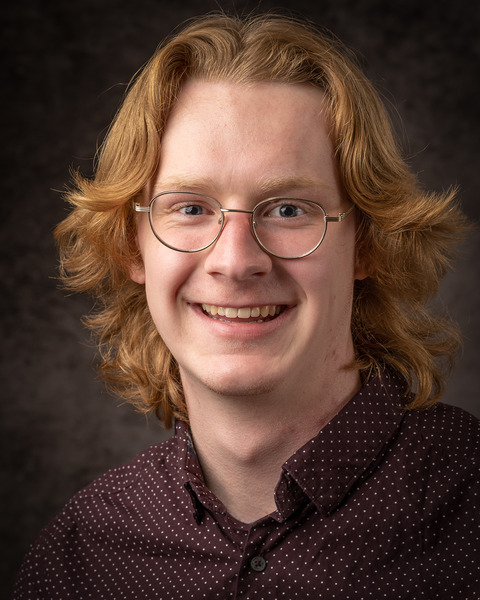 Mason Wageman is a student at the University of Denver studying English and Computer Science. He also has works published in The Martian Wave and fsm.
Mason Wageman is a student at the University of Denver studying English and Computer Science. He also has works published in The Martian Wave and fsm.
![]()
